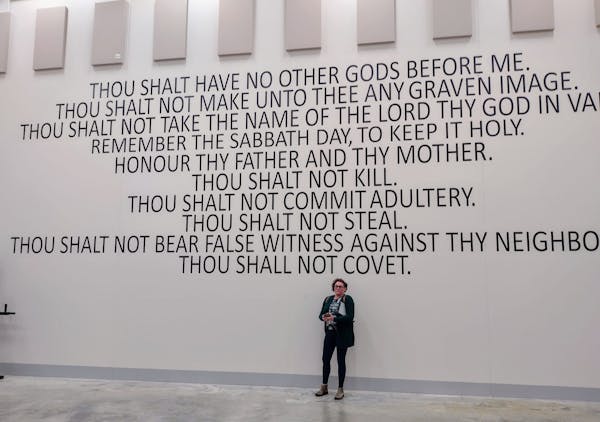In his second collection of essays, Tony Hoagland sets out on what seems a doubly impossible task, even for one of the more interesting and exciting poets writing today. His plan? To put forth 20 poems that could save America. The reader might wonder: Wouldn't he first have to save poetry? I mean, haven't the naysayers for years been declaring its irrelevance? Aren't there countless articles and essays eulogizing the once-great art form? My god, isn't poetry dead?
Luckily, Tony Hoagland doesn't think so. Quite the contrary: He believes (and with good reason) that poetry is thriving. He admits there's a problem, though, and wonders if it doesn't find its roots in our first encounter with the art form: "We never quite got … the fierce life of contemporary American poetry … inside the American school system and thus never quite inside the culture."
So, he suggests, we ought to update the list of poems taught in our schools. "If we are not in love with poems, the problem may be that we are not teaching the right poems. … If anthologies were structured to represent the way that most of us actually learn, they would begin in the present and 'progress' into the past." Think of it this way: We learn to count and add before we move on to the higher mathematics. It's no wonder so many of us felt insufficient in the presence of Donne's Holy Sonnets. Had we spent some time with Mary Oliver or Hoagland himself before we encountered Donne, we might have been better equipped to handle his beautiful, battered heart.
It's with this same logic that Hoagland's book progresses. The first few essays lay an accessible theoretical framework, so even the initiate understands the concepts that the following essays employ: Diction leads to idiom leads to form leads to numerous lucid essays on contemporary poets and poetry — Sharon Olds, Dean Young, Jane Hirschfield, Marie Howe and others. If you're interested in what American poets are up to these days, there may be no better teacher than Tony Hoagland. (The essay on Robert Bly is alone worth the price of admission.)
The great literary challenges are, Hoagland writes, "profoundly human ones." He reminds us that "language is infinitely elastic and self-renewing. … It's like a vast coral reef, an enormous organism," and that it's in this "ecosystem of American English" where poetry is a rejuvenating force, "maintaining, renovating and sometimes adding to the size of the world." Imagine what this country might look like if we loved poetry as much as we did money.
Billy Collins once said high school is where poetry goes to die. Hoagland believes high school could be where poetry goes to begin its long journey in "that most interesting of places, the American mind."
As for which 20 poems could save us, well, you're just going to have to read the book.
Ryan Vine is a Duluth poet and a recipient of an Artist Initiative grant from the Minnesota State Arts Board.
In heated western Minn. GOP congressional primary, outsiders challenging incumbent

Minnesota Sports Hall of Fame: A class-by-class list of all members

This retired journalist changed professional wrestling from Mankato

